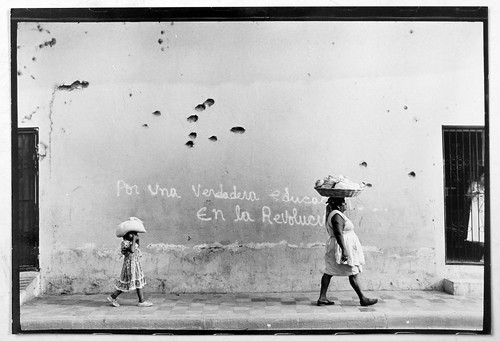
Not surprisingly, most of my clothes were made in developing nations, with the exception of a vast amount of Chinese-made products. Many items were from Bangladesh, Indonesia, Vietnam, Macau, Mexico, Guatemala, Malaysia, Sri Lanka, Taiwan, Nicaragua, and Lesotho. Almost all of my T-shirts were made in El Salvador and Honduras.
Why?
Why is nothing we wear in the U.S. actually made here, and why is it all made in developing countries? I'm going to go out on a limb and say that American companies are outsourcing and exploiting the peoples of other nations for cheap labor. I see no worth in this. We get cheaper goods, but is it worth the price that we make someone else pay? Is it worth it to exploit workers for 12 hours a day just to that I can buy my low-priced t-shirts and running shoes? From what I can gather so far, it isn't.
I have heard many say say that these factories give people jobs that they wouldn't have otherwise. I spoke to a man who, when I argued that clothing made by a machine instead of hand woven goods exemplifies a loss of culture, asked me, "But what is culture? None of us have culture. We're globalizing and we're all the same." When I opened my mouth to argue, he told me, "Jesus never said, 'Be ye diverse.'"
Toucher. Toucher, mon amie. I never did read a scripture containing those words from The Savior. But, did He not teach us to treat one another equally? Are we not all children of the same divine heritage? Or, at the very least, are we not all human? Why is it okay for a Bangladeshi woman to work 12 hours a day in a sweatshop hemming the skirt I will buy in a JC Penny, but for a man to do the same job in the United States is inhumane? Do we have the same standards for someone without an American birth certificate? I asked this man if he thought these kind of jobs benefitted these countries. He told me yes, because they would have nothing else to do if we didn't bring them jobs. Hmm. I find this hard to believe. Would they not find something else to do? Some other way to create jobs? Personally, I don't feel like American factories in the developing world are really making much of a difference to their economies.
